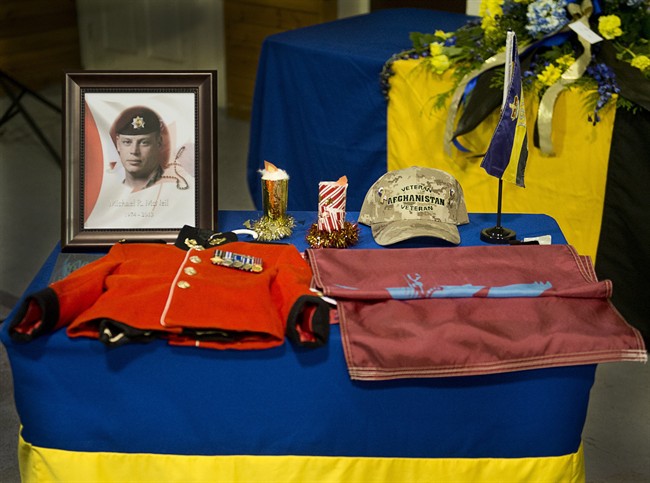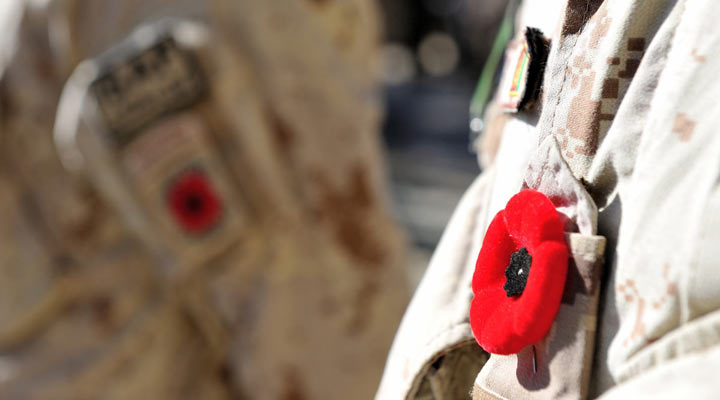TORONTO – A string of highly publicized soldier suicides that started last November and reached a grim tally of eight mid-January led the government to increase staff responsible for backlogged investigations into suicides within the Canadian Forces.

At the end of January, there were as many as 50 open files in various stages of completion, but the Department of National Defence has since made progress in these reports, which are called “Boards of Inquiry” (BOI).
The BOIs are meant to improve support systems for current or future soldiers, since the department says it will enhance mental health and suicide prevention programs based on the findings.
The incomplete files were pointed out by Federal NDP Leader Thomas Mulcair in an open letter to Prime Minister Stephen Harper, urging the government to address alleged deficiencies within the Canadian Forces’ mental health programs.
“While we appreciate steps have been made to improve access to health services, and to remove the stigma associated with mental illness, it is clear that these efforts have not been sufficient,” wrote Mulcair.
“In too many cases, grieving families are left without answers or closure–and Canadians are left with grave concerns about whether the system put in place to help our armed forces is broken, or if we are learning from these tragedies in order to prevent future ones.”
Mulcair’s letter was written Jan. 10, and followed many exchanges between opposing parties regarding mental health in the military as the number of suicide reports increased.
Then in late January, the minister of National Defence and Chief of Defence Staff allotted extra staff to expedite the completion of unfinished files.

Get daily National news
“On February 17, 2014, a special team reporting to the Chief of Military Personnel was stood-up to support Chief Review Services with the outstanding reports,” said spokesperson Daniel Le Bouthillier in an email to Global News. “As of April 9, 2014, 12 files were being investigated, 18 files were under review and 28 reviews were completed.”
So what do those categories mean?
Files that are “being investigated” are lacking certain documents, such as a death certificate, insurance information, etc. said National Defence spokesperson Marie-Hélène Brisson. She said files that are “under review” have collected all of the required documents, and staff are in the process of reviewing and creating a report.
Brisson noted these investigations are more of a “review of facts” rather than a finding of fault in the military process.
“We’re not trying to see where our policies went wrong – chances are 99 per cent of the time it’s not our policy that went wrong anywhere—it’s: How could we support them? What could we have done? Or in some cases it’s a very personal reason; it has nothing to do with their employment in the military.”
The department couldn’t immediately provide examples of program changes related to BOI findings citing privacy concerns, but Brisson said hiring additional psychologists was not one of the changes. She said as soon as an opportunity for improvement in military process is identified in a BOI, it’s implemented in military process.

Brisson said the BOIs occur for both suicides and deaths from other causes, and the backlog isn’t necessarily because of an increase in the number of deaths. The oldest outstanding case is from 2009—“fairly old,” she said.
“So it doesn’t mean there’s more per year; it’s simply that there was a shortage of staff and they weren’t able to process everything.”
Unfortunately, there will continue to be deaths and therefore reports that need to be done, Brisson said, so at any one point, there will never be a “clean slate” when it comes to the investigations.
“I am pleased to see the progress that has been made to address the outstanding Boards of Inquiry for cases of suspected suicide,” said Chief of the Defence Staff General Tom Lawson in a statement. “Findings from these investigations will provide greater insight into suicide in the Canadian Armed Forces, and will inform how we enhance the quality of our mental health care program. Although great work has been accomplished, I trust that the outstanding reports will be completed promptly.”



Comments